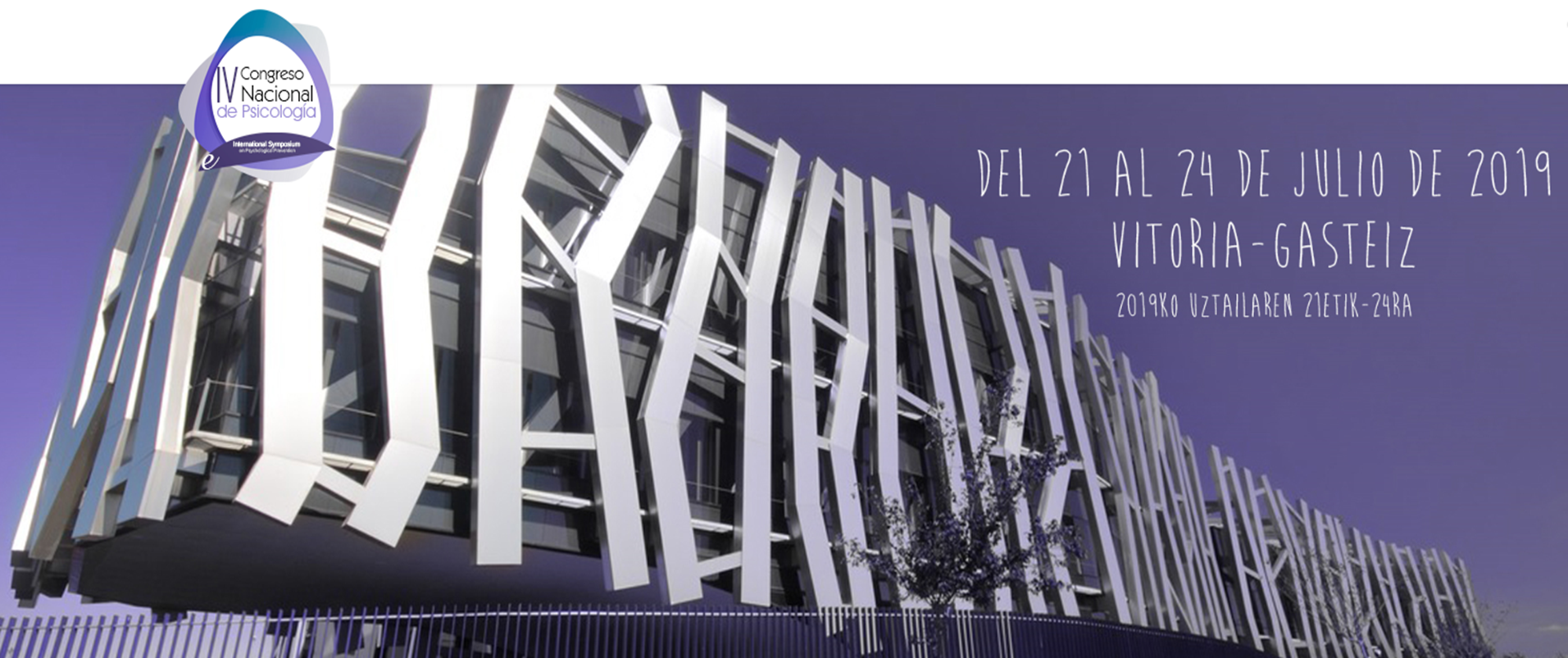The fourth national congress took place from 21 to 24 July 2019 in the city of Vitoria-Gasteiz.
 Nekane Murga, Basque Regional Minister for Health, was in charge of opening the congress, which was held this year for the first time alongside the International Symposium on Psychological Prevention. Over four days more than 1,500 people gathered at the congress with the theme “Nada de lo psicológico nos es ajeno” (Psychology-related issues affect us all). Organised by the Spanish Foundation for the Promotion and Scientific and Professional Development of Psychology (Psicofundación) and the General Council of Psychology of Spain (COP), the congress has become an event not to be missed by specialists, researchers and students. The programme was varied, interesting, demanding and very participatory, with more than 1,000 organised activities including talks, symposiums, round tables, workshops and state-of-arts. The main topics were loneliness, suicide and addiction prevention, psychology in Primary Care, domestic abuse, addiction and bullying at school.
Nekane Murga, Basque Regional Minister for Health, was in charge of opening the congress, which was held this year for the first time alongside the International Symposium on Psychological Prevention. Over four days more than 1,500 people gathered at the congress with the theme “Nada de lo psicológico nos es ajeno” (Psychology-related issues affect us all). Organised by the Spanish Foundation for the Promotion and Scientific and Professional Development of Psychology (Psicofundación) and the General Council of Psychology of Spain (COP), the congress has become an event not to be missed by specialists, researchers and students. The programme was varied, interesting, demanding and very participatory, with more than 1,000 organised activities including talks, symposiums, round tables, workshops and state-of-arts. The main topics were loneliness, suicide and addiction prevention, psychology in Primary Care, domestic abuse, addiction and bullying at school.
The European project UPRIGHT was presented at the symposium called “Resiliencia en menores y adolescentes: vulnerabilidad, fortalezas e intervenciones comunitarias” (Resilience in minors and adolescents: vulnerability, strengths and community interventions). The study “UPRIGHT: Programa de entrenamiento en resiliencia en adolescentes” (UPRIGHT: Adolescent Resilience Training Programme) was presented to an audience mainly made up of mental health experts. Osakidetza experts were able to show the programme they will be using to foster mental well-being and help prevent mental illness, by building resilience in adolescents (12 and 14 year-olds). Four stages which define UPRIGHT were highlighted in the presentation:
1) Co-creation (co-design, co-production and co-personalisation) of the intervention
2) Deployment of resilience intervention in five different European regions: Basque Country, Trento (Italy), Lower Silesia (Poland), Denmark and Reykjavik (Iceland).
3) Evaluation of processes and results through quantitative and qualitative analyses, and predictive modelling tests.
4) Transfer of knowledge regarding the application of a positive mental well-being culture to future regional, national and European programmes.
The symposium enabled the exchange of experiences with other professionals who work directly in the area of resilience in adolescents.
Learn more about all that happened at the congress here: http://www.cnp2019.es/
Visit their official website: www.uprightproject.eu or follow @Uprightproject1 to stay up to date with UPRIGHT.





